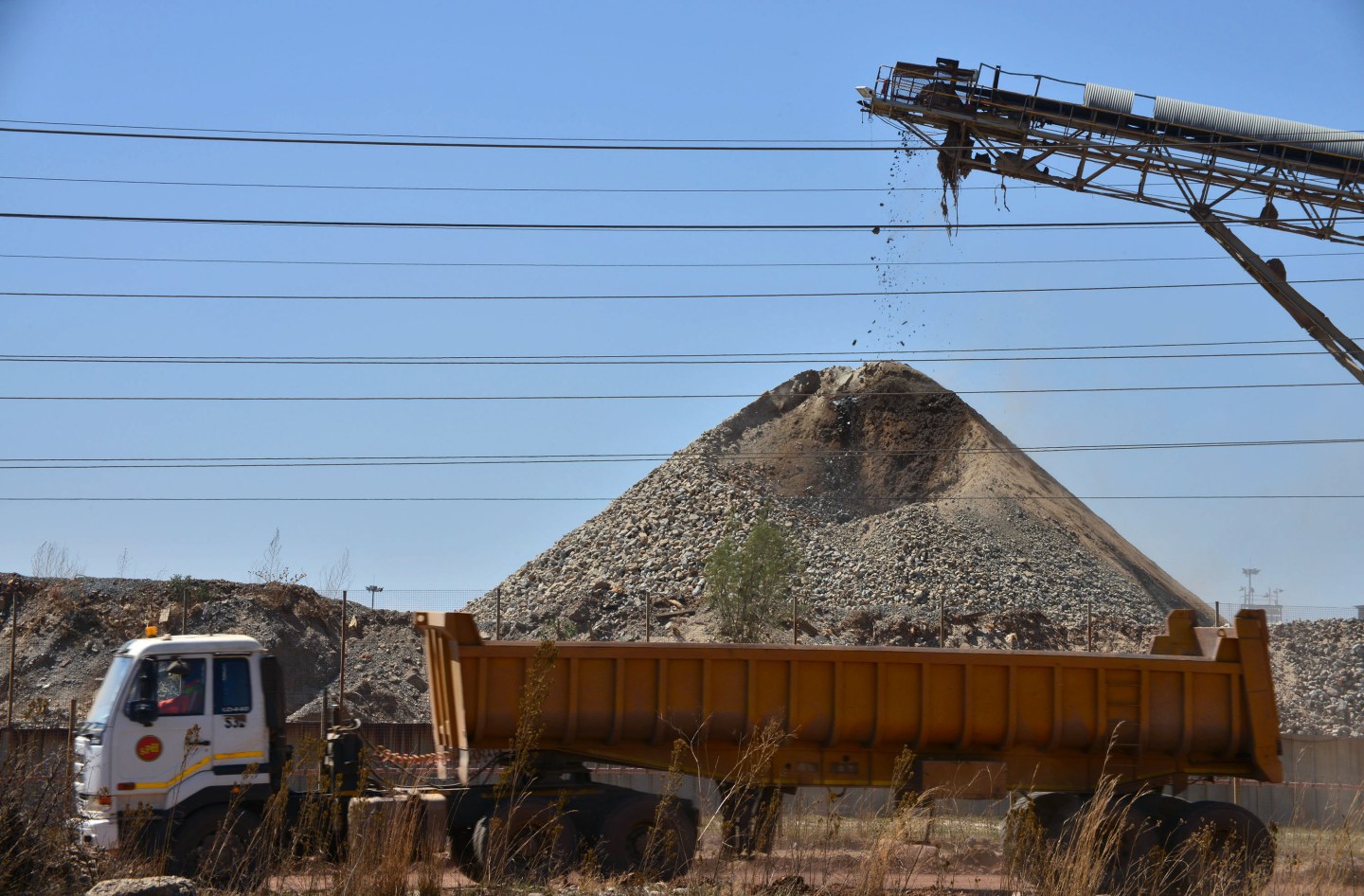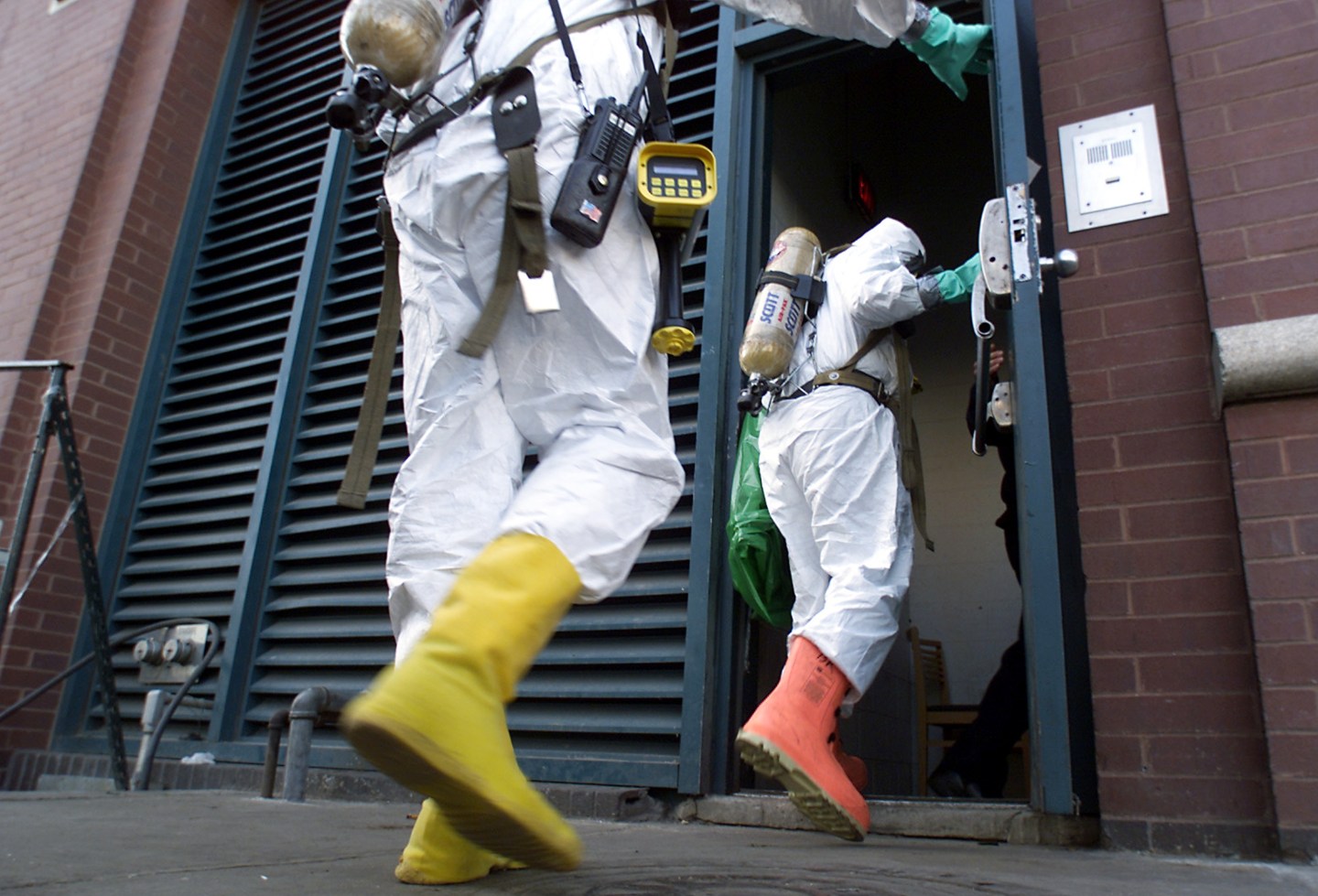Fear of Ebola has reached a fever-pitch following news on Tuesday of the first confirmed case in the U.S. Concern about the deadly disease isn’t likely to ebb any time soon. An outbreak in West Africa has already claimed thousands of lives. The possibility of more deaths and illness has put some industries on notice, with some facing severe economic hits while others are just ramping up. Here’s a list of five industries affected by the outbreak.
1. Airline industry

With Ebola on travelers' minds, it's no wonder the airline and tourism industries are facing severe blows to their business. A highly infectious disease isn't something business travelers or a family on vacation want to pick-up. The ability of airlines to screen passengers for the disease is far from certain. The checks placed on Thomas Eric Duncan, the first person diagnosed with Ebola in the U.S., obviously didn't do enough to keep him from entering the country on a flight while sick. That, understandably, has would-be travelers on edge. Shares of U.S. airlines dropped, too, with American Airlines (AAL) down 1.33% on Thursday and another 3.1% on Wednesday.
2. Oil industry

What do Exxon (XOM) and Ebola have in common? A lot, apparently. That's because the oil giant has drilling activity in the heart of the outbreak zone - West Africa. But there's not going to be much activity at the moment. In fact, Ebola is halting some of the company's drilling in the region, according to company spokesman Patrick McGinn to USA Today. "Safety, health and logistical issues related to Ebola will delay the planned late 2014 start of ExxonMobil’s first exploration well offshore Liberia,” he said in a statement. Interestingly, shares of Exxon did not appear to be negatively impacted by the announcement.
3. Mining industry

Like the oil industry, it's an issue of wrong place, wrong time for the mining industry. More specifically, the countries hit hard by Ebola like Liberia, Guinea, Sierra Leone and Nigeria are facing an impact in one of their biggest industries. Some mining companies are chipping in with aid efforts through donations, according to the The Guardian. Others are wary of possible harm to their employees and are pulling international workers from the West African countries. The main mining companies affected include Rio Tinto (RIO) and Vale (VALE).
4. Protective gear industry

Hazmat suits are in big demand these days. People are racing to get their hands on them, at least if rising share prices of the companies that make them are any indiction. On Wednesday, shares of Lakeland Industries (LAKE), a company that produces the suits, soared 30% after the federal government confirmed the first Ebola case in the U.S. On Thursday, however, shares ended down about 7%. If you want one of the protective suits for yourself, it will set you back $1,200.
5. Pharmaceutical industry

Probably least surprising on the list of industries affected by Ebola are the pharmaceutical companies scrambling to get a cut of the action by producing an effective cure. Fortune took a look at the various drug makers rushing to get treatments on the market, including, Tekimira Pharmaceuticals (TKMR), Hemispherx Biopharma (HEB), BioCryst Pharmaceuticals (BCRX) and NanoViricides (NNVC). Most of those companies saw their stocks rise on Thursday. The main drug on the market so far has been ZMapp, manufactured by Mapp Biopharmaceutical (MAPP), LeafBio and Defyrus. But the supply ran out in August, and ramping up production is challenging.





